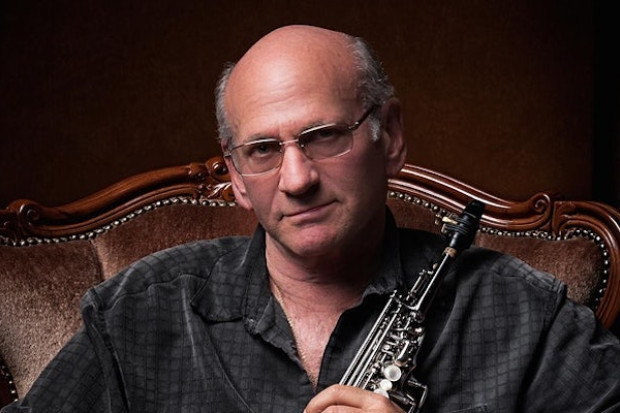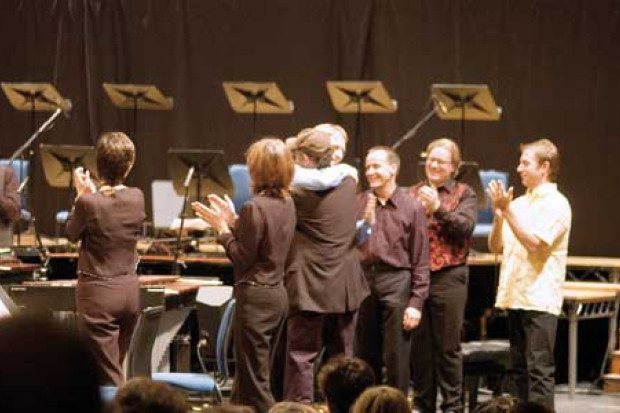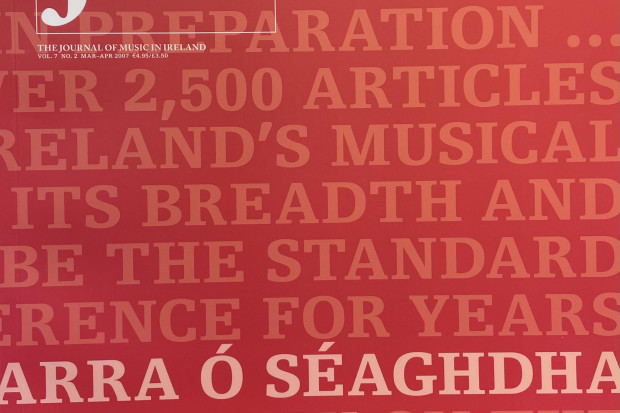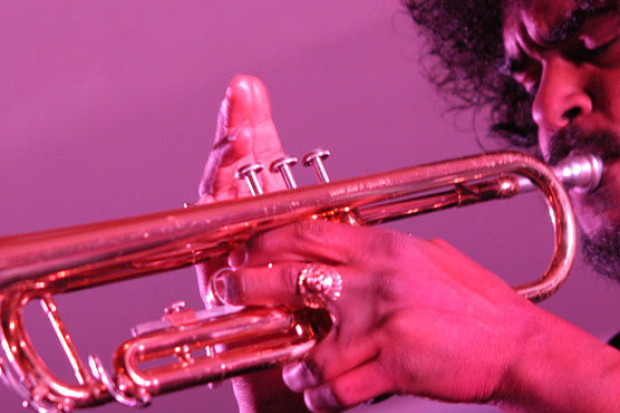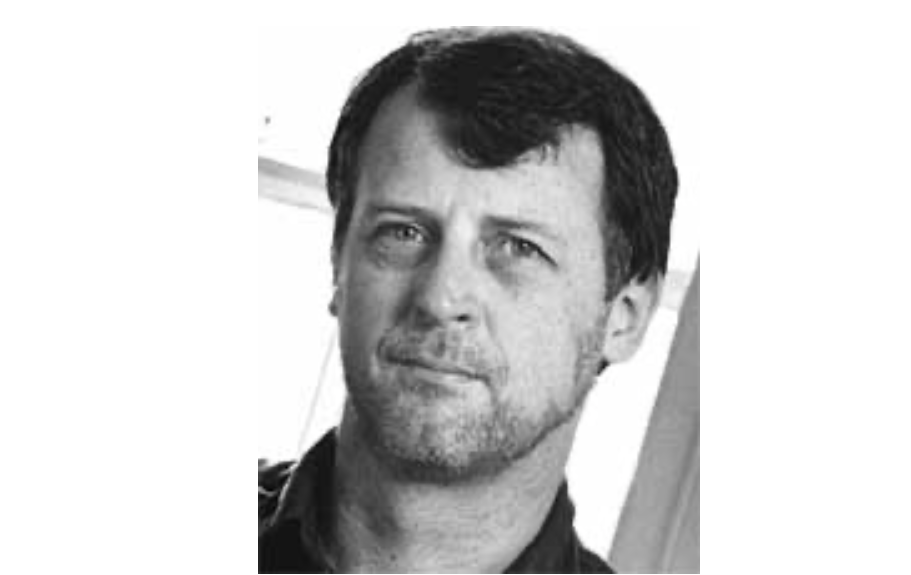
Third-level Jazz: The Situation in Ireland
Irish music education should aspire to at least encompass those elements of music training that are readily available to students in all other parts of Europe. Outside of the classical education system, jazz is by far the biggest force in music education today, yet Ireland is almost alone in Europe in not providing this option to Irish students at third level.
Jazz is a quintessentially twentieth-century art form that has now outgrown its original American roots and has become an international musical language. Although originally taught in an exclusively oral manner, over the past forty years a method of teaching this music in academic institutions has also been developed and has achieved widespread recognition and success throughout the world. Originally developed in the United States, there are now many colleges, universities, conservatories and academic institutions teaching the music, not only in North and South America, but also in Europe, Asia, Australia and Africa. The benefits and necessity of having such courses are being increasingly recognised even by such hitherto conservative organisations as the Associated Board, who have recently introduced a jazz curriculum. Even such bastions of classical music as The Royal Academy of Music in London, The Sibelius Academy in Helsinki and the Juilliard School in New York all have fully fledged jazz programmes.
To quote David Liebman, one of the world’s foremost jazz educators and Artistic Director of the International Association of Schools of Jazz, ‘In my opinion, if you get a jazz education now, you’re getting the liberal arts education of music in our time. By understanding jazz you understand pop music, you understand classical music and jazz, and you really see the spectrum of music of the last hundred years. So for me it’s like the studying of the “three Bs”: if it was a hundred years ago you’d be studying the “three Bs” — Bach, Beethoven and Brahms. This is like the three Bs of our time.’
Jazz education is one of the most comprehensive and broad-based forms of music education available today. As the music has evolved it has become ever more complex and demanding on its practitioners. Consequently, students of the music must not only be virtuosi on their instruments, but must also be conversant with many different styles of music, have a complete command of twentieth-century harmonic techniques, be able to read fluently and be able to compose and arrange for ensembles of various sizes. On top of this the jazz student is also expected to be adept in the traditional virtues of improvisation and to have acute musical instincts that can be called upon while extemporising in a group setting.
The practical consequences for a musician that comes through this system is that he or she is prepared for work in a wide variety of musical environments, some of which may not be directly involved with jazz at all. A 1997 survey in Holland found that over 80% of musicians who studied jazz at third level there remained as active performers in the music after the completion of their studies. This showed jazz to have the highest success rate in the performing arts in Holland in terms of the ratio of people becoming employed in the discipline for which they had been trained. When one considers that teaching was excluded from the survey it shows the extraordinary practical success of the jazz education system (Source: Royal Conservatory of Music, Den Haag, Holland).
The first structured jazz courses in Ireland began in the Newpark Music Centre in 1986. They have continued successfully there up to the present, and are now offering courses up to diploma level, (LGSM in Jazz). These are the only full time jazz courses available on the island of Ireland. There are no third level jazz courses offered here. If one moves eastward geographically from Ireland to Russia (which has many third-level jazz programmes), the only other country in Europe that shares this distinction with us is Albania.
The recent introduction of jazz (or at least the possibility of studying and performing improvised music) into the new Junior and Leaving Certificate means that the music can — in theory at least — be studied up to second level here. However, we now have the ridiculous anomaly where the Department of Education deems it OK to study non-classical music up to second level, but has made no provision for the logical extension of that into third level. I can give a practical example of how ridiculous the situation is here. My daughter is doing her Leaving Certificate this year. In music she uses bass guitar as her principal instrument and did the practical examination in her Junior Certificate on bass guitar. She achieved honours in the Junior Cert. music examination and in all likelihood will achieve the same in her Leaving Cert. However, no matter what level she achieves in her Leaving Cert., she will still be unable to enter a third level music programme in this country. (She was already informed at the UCD Open Day that she could not enter UCD to study music because she played a non-classical instrument.) This is ludicrous. It is an extraordinary example of incompetence on the part of the Department. How can they say that it is fine to study non-classical music as far as second level, but not up to third?
One of the third level institutions should offer, at least, a (minimum) three-year Bachelor of Music degree in Jazz. There are teachers here now who can teach the requisite skills for such a course, and Ireland badly needs to catch up on its European partners and set up the necessary structures from which a student can obtain a degree in jazz.
In a typical jazz B.Mus. programme, the following areas would be covered:
• Instrumental or Vocal skills
• Keyboard skills
• Composition
• Arranging for large and small ensembles
• Study of diatonic/chromatic harmony
• Study of Afro-Cuban music
• Ensemble Improvisation
• Aural training
• Jazz history
• History (1st year)
• Classical performance (at least 1st year)
• Overview of World Music (1st year)
This shows the inclusivity and tremendous breadth of the jazz education system, and what a wide range of skills and employment opportunities it offers to the people who study it.
But having a jazz education programme at a third level institution would not only benefit jazz students. There is a widespread growth in courses that involve elements of both classical and jazz music. Outstanding examples of this can be seen in such institutions as the Guildhall School of Music in London, The University of Michigan in the United States, the Hochschule Für Music in Graz and the Bruckner Conservatorium in Linz in Austria.
Jazz and classical music studies work very well together. Most jazz musicians today (depending on instrument) study classical music up to a fairly high level. They benefit from the discipline and rigour of the classical education system, and since modern jazz utilises many elements of twentieth-century classical music it is of tremendous benefit to the jazz musician to undertake a thorough study of this discipline.
Similarly, the classical musician can benefit from learning the techniques and practices of improvisation. The aural abilities of and use of musical instinct by jazz musicians in a group setting is on a very high level, and their use of scales and harmony as creative devices will tremendously benefit classical students in terms of making them more rounded musicians. Rhythm, of course, also plays a very big role in jazz and many methods have been developed in jazz pedagogy for teaching rhythmic technique. These would also benefit musicians from the classical tradition in helping develop their rhythmic technique. There are many ways of setting up jazz/classical programmes that are of benefit to both disciplines. The most obvious scenario is one in which musicians doing a degree course, in either discipline, would take modules in the other one. This would be both easy to set up and operate.
A case could also be made, however, for the creation of a self-contained course that would combine elements from both disciplines in a very exciting and innovative way. What I have in mind is a course in which the students would study both disciplines simultaneously in a diploma course devised by the institution in which it is held. The aim would be to provide the students with a very high and broad level of performance skills that would give them a distinct advantage in the marketplace when the time came to make their living as musicians. The creation of such a course would of course require a lot of preliminary consultation and work in order to set up, but I believe it would be worth the effort.
We pride ourselves on the abundance of the musical talent that comes out of Ireland, yet Ireland is almost alone in Europe in not providing the option of third-level jazz education. Outside of the classical education system, jazz is by far the biggest force in music education in the world today, yet the Department of Education still maintains a nineteenth-century mentality when it comes to music. Ireland has caught up with, and sometimes surpassed, its contemporaries in Europe in many areas in recent years. There is no reason why we should be so deficient in the provision of something that is taken as a given in every other country in the EU.
–
First published in JMI: The Journal of Music in Ireland, Vol. 1 No. 4 (May–June 2001), pp. 5–7.
Published on 1 May 2001
Ronan Guilfoyle is a bass player, composer and Director of the Centre for Jazz Performance at DCU.












